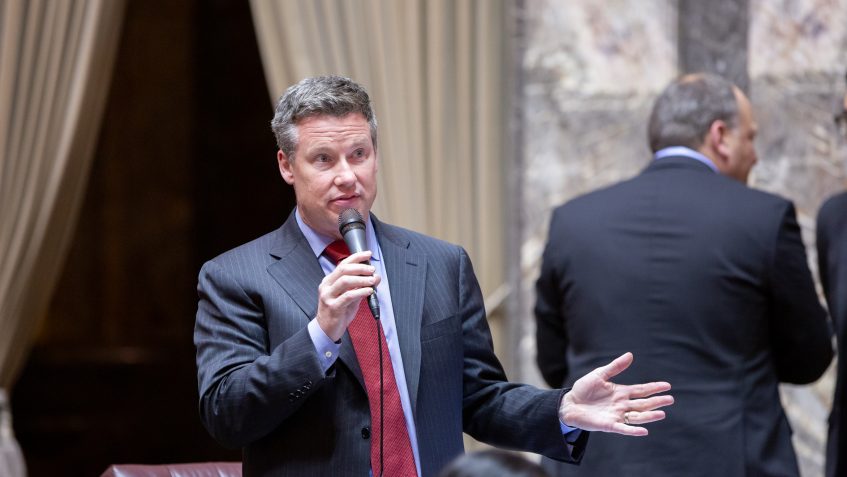OLYMPIA – Teachers’ salaries would not be cut and their rights to collectively bargain would not be restricted by legislation ensuring that school districts put money from additional local levy dollars toward needed services like librarians and counselors, Sen. Mark Mullet (D-Issaquah) emphasized today.
Mullet spoke out to address what he said were inaccurate reports about his amendment to Senate Bill 5313, which the Senate Ways & Means Committee adopted at 1 a.m. Wednesday morning at the end of a lengthy meeting.
The bill would partially lift restrictions on voter-approved school levies that legislators put in place in 2017 as part of a package to address the Washington Supreme Court’s ruling in the long-running McCleary case that the state was failing its constitutional obligation to amply fund basic education in K-12 schools.
Lawmakers at the time responded to the court’s holding that the state’s failure led school districts to over-rely on local levies by increasing state funding for core operating expenses and capping the levies.
“The McCleary decision made clear that the state is constitutionally responsible for funding basic education, including teachers’ salaries,” Mullet said. “Senate Bill 5313 is an attempt to give districts that feel they need more money to adjust to this new system more access to local levy dollars. But we need to make sure local levy dollars are used to support staff, like librarians and nurses and counselors, and that we don’t go back to relying on local funds to pay teachers’ salaries, which would land us right back in court.”
Mullet’s amendment ensures that additional money from local levies would have to go to education programs and support services, but Mullet said under no circumstances would any teacher receive a pay cut. The amendment does allow local funds to go toward salary increases for extra work – like coaching athletes or leading extracurricular programs – or to compensate teachers for obtaining professional certification.
Mullet said his amendment does not limit teachers’ right to collectively bargain, but it does make clear that if local levy dollars are used to supplement the ample salary dollars provided by the state, then that supplemental money needs to be for compensation for extra work.
The amendment has drawn opposition from teachers unions, which withdrew support for the bill following the bipartisan vote adopting the amendment. But Mullet said that action demonstrated the need for the amendment.
“If the unions weren’t planning to rely on these local funds to pay teachers’ salaries – which was a huge problem in the McCleary case – why are they now trying to kill a bill that would give schools access to hundreds of millions of potential dollars to support programs and other staff?” he asked.



